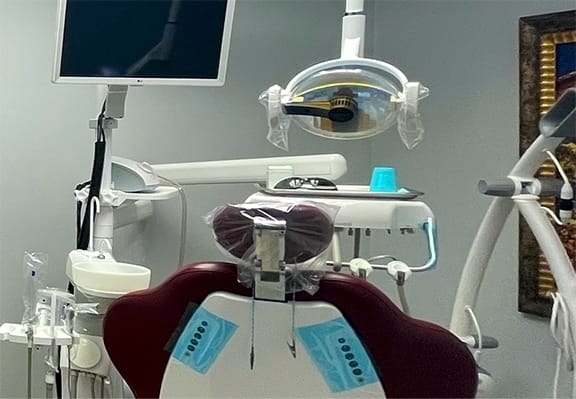Oral Surgery
Tooth extractions are the most common procedure performed by oral surgeons. Besides the extraction of teeth, many other types of surgical procedures may be needed to ensure health and provide a suitable restoration for a healthy dentition.
Make Appointment
Extractions & Care
We specialize in gentle care for all your oral surgery needs. We want our patients to feel relaxed and know they will receive the individual attention that they deserve. Our office works with a team of specialists for complex cases to provide the highest quality of care possible. We have Care instructions for before and after your surgery appointment to help your recovery go more smoothly.
Care Instructions
Nitrous Oxide Sedation
The calming inhalant known as laughing gas is for patients who are mildly or moderately anxious or nervous. It eases their anxieties so that they can relax and undergo treatment comfortably and safely. The gas is administered by placing a small hood over the patient's nose. As the gas takes effect, the patient becomes relaxed, but is still awake and can communicate. When the gas is turned off, the effects of sedation wear off almost immediately.
Oral Sedation
Patients who are more anxious may need an oral medication that is stronger than nitrous oxide. With oral sedation, the patient may be sleepy but can be aroused and will respond to simple commands. Minor side effects such as nausea or vomiting can occur with some medications. Before a visit in which a patient is to receive oral sedation, he/she will receive instructions about eating and drinking, what to expect and what to watch for after treatment. You will need assistance to get home after sedation.
Dental Anesthesia for Children
Our office often treats patients who present special challenges related to their age, behavior, medical conditions, or any other special needs. To address these challenges effectively in order to provide "predictable" treatment, your pediatric dentist may recommend treating your child under General Anesthesia.
Bello-Burgos Smiles, by virtue of training and experience, is qualified to recognize the indications for such an approach and to render such care. Our team will discuss all the necessary steps that must be taken in order to promptly and safely complete your child's dental treatment after this treatment option has been chosen. 
Surgeries & Procedures
We have years of advanced specialty training to allow us to treat a variety of dental needs as well as aid in treatment designed to keep your gums and mouth healthy. We work as a team to ensure you receive the best care available.
Procedures

Wisdom Tooth Removal
Wisdom teeth generally begin to form in your pre-teen years. By late teen years, the crown of the wisdom teeth will begin to erupt through the gums if there is adequate room. By mid twenties, your wisdom teeth will either be able to fully erupt or will have become impacted. Early removal of wisdom teeth makes the procedure easier for the patient to tolerate and promotes faster healing after wards. By your early forties, the wisdom teeth roots have become fully anchored to the jawbone and if required to be extracted, will be much harder and will need more time to heal.
Wisdom teeth under ideal circumstances should grow in straight like any other tooth. However, it is common for wisdom teeth to become impacted inside the jaw or just under the gums. If this occurs, your wisdom teeth should be removed. The problems involving your wisdom teeth may be caused by the size of your jaw and/or by how crowded your teeth are. Common warning symptoms that there is an un-natural problem in the development of your wisdom teeth could be pain and swelling.
If wisdom teeth don't have enough space symptoms can occur. The wisdom teeth may only partially erupt or might not come through at all. Dentists designate wisdom teeth 'impacted' if they are wholly or partly blocked from eruption into the mouth. The tooth may lie at an angle and remain tipped against an adjacent tooth. Symptoms may be intermittent but can begin anytime without warning. If you are experiencing symptoms, it is best to get treatment 'usually removal' as soon as you can to avoid potentially expensive and painful complications.